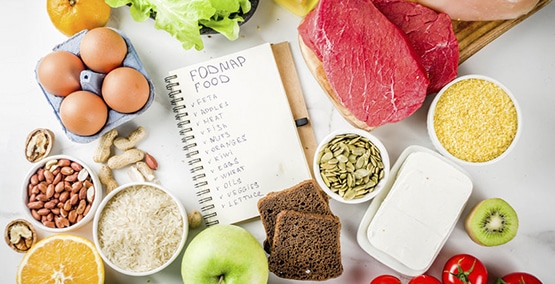
Dietary treatment for the irritable bowel syndrome
Irritable Bowel Syndrome (IBS), also known as a Spastic colon, is common problem causing cramping pain, diarrhea or constipation, and often bloating as well. Although it more common among adults (women 2 times as often as men), it is not uncommon in children as a cause of abdominal pain and school absences.
Though IBS sounds like IBD or Inflammatory Bowel Disease and share some of the same symptoms, IBS does not cause bleeding, anemia, weight loss or any of the extra-intestinal problems. This is an important distinction and the reason I am stressing it, is that any of these other symptoms hopefully will prompt you to have your child see a doctor instead of going on a diet program or ignoring problems that can delay the right diagnosis and make them worse. Note too that those with intestinal problems like IBD are particularly prone to have IBS symptoms as well.

The Reasons Changing Your Child's Diet Can Help
We've known for a long time that the cramping and bloating often seem to follow meals. When patients have been asked if they notice any specific triggers, lactose and other foods containing sugars are often present (yes, stress, anxiety and depression are often there too–and we'll talk about that in a moment). So a group in Melbourne, Australia began eliminating a broader group of sugars and complex carbohydrates from diets. Many of their patients improved–markedly.
The sugars (saccharides) they eliminated are the ones that may not be well absorbed in the small intestine, that then do down to the large intestine where they are broken down (fermented) into gas and extra water. Though that doesn't present a problem for others, in those with IBS, the gas and extra water from the fermented foods then causes bloating and cramping. These sugars and other carbs have been categorized as FODMAPs, Fermentable Oligosaccharides, Disaccharides, Monosaccharides And Polyols (food alcohols).
And a recent study* by those who developed the diet, shows that foods low in FODMAPs reduced bloating, pain, and as they say it, the passage of wind, compared to the typical Australain diet. And it improved the consistency of bowel movements. And a comparative study in the UK,** showed the low FODMAP diet superior to their national treatment guidelines.
Foods Limited (but not necessarily eliminated) on the Low FODMAP Diet
- Lactose (dairy)
- Fructose (apple, mango, pear, watermelon, honey, sugar snap peas, high fructose corn syrup)
- Fructans (persimmons, wheat, artichokes, asparagus, beet, brussel sprouts, cabbage, fennel, garlic, leek, okra, onion, peas, radicchio lettuce, shallot, and inulin
Galactans (beans, lentils, legumes including soy) - Polyols (, avocado, apricots, cherries, nectarines, peaches, plums, blackberries, lychee, cauliflower, mushrooms, snow peas, sweeteners containing sorbitol, mannitol, xylitol, maltitol
- Broccoli, corn, eggplant and zucchini, though low in FODMAPs may bother some
Longer Term:
Some find improvement within just a few days, but if it doesn't work by 3 weeks, the Australian study suggests you're not going to see an effect and it can be discontinued. If it's working by then, you can begin to slowly introduce the foods you've limited or eliminated. One food at a time, for 3-5 days, then go on to the next. If it triggers symptoms, eliminate it. Then go on to the next until you've liberalized your child's diet as much as possible. Also, be aware that stress, anxiety and depression can also trigger symptoms, so 1) don't manipulate the diet during stressful times–you won't get an accurate read on whether that food is playing a role or not, and 2) you may want to seek help for the psychological factors that can cause colonic spasms.
* EP Halmos et al, A diet low in FODMAPs reduces symptoms of irritable bowel syndrome, Gastroenterology 2014;146:67-75. (Shepard and Gibson, coauthors developed the diet)
**HM Staudacher, et al. Comparison of symptom response following advice for a diet low in fermentable carbohydrates (FODMAPs) versus standard dietary advice in patients with irritable bowel syndrome. J Hum Nutr Diet. 2011;24:487-95.




